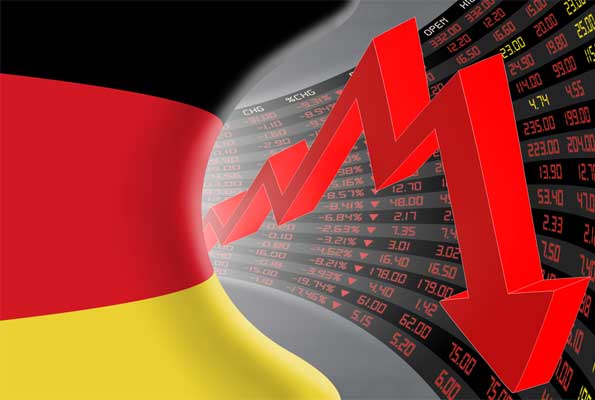Official data indicated that the German economy stagnated in the first quarter as government and private consumption fell, and exports and capital investment rose.
The federal statistics office reported that adjusted GDP was flat quarter-to-quarter. Reuters polled economists and predicted 0.2% growth.
The statistics agency will disclose its 2023 first-quarter data on May 25.
“The German economy remained stuck in the mud at the start of 2023, only barely avoiding recession,” Pantheon Macroeconomics chief eurozone economist Claus Vistesen said.
In the fourth quarter of 2022, the German economy contracted by 0.5%, sparking fears of a technical recession.
“With the outturn for the fourth quarter also revised down, that left the economy broadly in line with its pre-pandemic level, while GDP is significantly above that mark in Italy and France,” said Capital Economics senior Europe economist Franziska Palmas.
In its spring economic estimates released Wednesday, the German government boosted its annual economic growth forecast to 0.4% from 0.2%.
“A gradual recovery is underway, despite a persistently difficult environment,” German Economy Minister Robert Habeck stated in the projection presentation. After the first quarter, growth should accelerate.
However, economists warn that the euro zone’s largest economy still faces a recession.
“The recent renaissance in industrial production could very well carry the economy through the second quarter,” said ING global head of macro Carsten Brzeski.
“After that, however, we fear the German economy will flirt with recession in the year’s second half,” the official stated further.
Brzeski predicted that the industrial backlog would have been reduced in the year’s second half without fresh, strong demand, the most aggressive monetary policy tightening in decades would completely unfold, and a U.S. economic slowdown will hurt German exports.
A half-year technical recession in the winter is unlikely. However, Commerzbank senior economist Joerg Kraemer cautioned about the year’s second half.
The European Central Bank’s sudden interest rate increase worries Kraemer. Kraemer said rate hikes have traditionally caused recessions in Germany.
Industrial orders at German factories have already seen their biggest fall in March since the outbreak of the Covid pandemic in 2020, as per the government data, another indicator which points towards the fact that Europe’s biggest economy is facing a steep downturn.
New orders, which give a foretaste of industrial output, dropped a surprise 10.7% from April 2023, according to provisional figures from federal statistics authority Destatis.
It was the biggest decline since April 2020, when the COVID outbreak snarled the global economy amid lockdowns and border closures.
The fall was far steeper than the 2.8% decline forecast by analysts surveyed by the financial data firm FactSet.
Orders had been rising in recent months, bolstering hopes that Germany was weathering the fallout from the Ukraine war and resulting energy crisis better than feared.
But the latest data rang alarm bells anew about the state of the economy, with LBBW bank economist Jens-Oliver Niklasch calling the plunge a warning for investors.
“This figure destroys what had been a good start to the year for German industry, and is a real recession signal,” he said in a research note.



